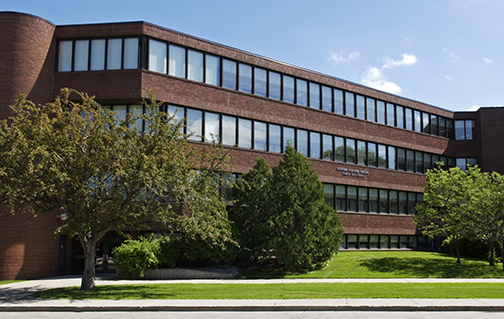The Program
Candidates in the Family and Consumer Sciences (FACS) Education major are prepared to guide a variety of teaching and learning experiences for students in grades 5-12, in occupational or non-occupational programs, adult programs, or to serve as an Extension educator. Hands-on experience is provided throughout the program to develop the teaching skills learned in classes.
The Family and Consumer Sciences (FACS) Education major has two pathways to prepare future educators:
- Teacher Licensure Pathway- prepares candidates to teach at the middle, secondary, post-secondary and adult levels in FACS education programs. North Dakota State University is designated by the State Board of Career and Technical Education as the recognized institution for preparing teachers of Family and Consumer Sciences Education.
- Training and Development Pathway - prepares candidates to develop and deliver educational programming in corporate training settings, Extension, and non-profit organizations. Students will learn to work with youth and adults in diverse educational environments. This pathway and program is unique to North Dakota State University.
Courses from all areas of Family and Consumer Sciences including individuals and families, nutrition and wellness, apparel, and consumer decision making are included in the program. This contributes to the versatility of the major since the broad range of knowledge may be applied to a wide variety of settings as an educator and/or a family and consumer scientist.
professional education courses
The FACS Education Teacher Licensure program is a collaboratively delivered program between the Department of Youth Development, Family, and Agricultural Education in the College of Agriculture, Food, Systems, and Natural Resources as well as the School of Education in the College of Arts and Sciences. Teacher candidates may enroll in the 200 and 300-level professional education courses (H&CE and EDUC) before being formally admitted to School of Education (SOE) coursework. Prior to enrolling in the 400-level EDUC courses, teacher candidates must complete the application for admission to the SOE. Requirements for admission can be found at the NDSU Teacher Education website.
Internship Capstones
Each of the pathways in the FACS Education major require an internship as the capstone experience to the degree. In the Teacher Licensure Pathway, that internship is Student Teaching. During Student Teaching, teacher candidates apply the knowledge and skills acquired in their college courses to real-world classrooms under the supervision of experienced agricultural educators in middle or secondary schools.
In the Training and Development Pathway, the internship is typically within the corporate setting, educational organization setting, or within an Extension setting. These candidates will also apply content and teaching and learning skills in their respective setting. They will develop and evaluate educational programming in a real-world setting, impacting the lives of others.
Student Advisement
An academic advisor works individually with family and consumer sciences teacher candidates to plan their programs of study and to advise and assist them as they progress to degree completion. Students are encouraged to seek their advisor's help whenever needed.
Licensure
Upon completing this program, teacher candidates are eligible for teacher licensure in family and consumer sciences in most states. Our program is accredited by the Council for the Accreditation of Educator Preparation (CAEP) and approved by the North Dakota Education and Standards Practices Board (ESPB).
Career Opportunities
FACS teachers continue to be in high demand around the country. Graduates pursuing a career in teaching become employed in both traditional and nontraditional teaching situations. Settings include teaching in middle and secondary schools and vocational centers. Other career options include employment as consultants in teaching family and consumer sciences at the elementary school level or serving as family and consumer sciences teachers for special education students. Teachers of adult programs work with various agencies and local school districts offering adult enrichment, continuing education, evening and summer classes, and programs for special groups such as parents, senior citizens and migrant workers.
Financial Aid and Scholarships
Information about various loans, grants, general scholarships and employment is available through the Office of Financial Aid and Scholarships or One Stop. Scholarships ranging from $500 to $1,000+ are offered to FACS students through the College of Agriculture, Food Systems, and Natural Resources. Annually, more than $30,000 is available to support NDSU FACS Education students at all levels.
Sample Program Guide
IMPORTANT DISCLAIMER: This guide is not an official curriculum. This guide is a sample four-year degree plan of how students might plan this major with other degree requirements to complete their education in four years.Student plans will vary from this sample due to a variety of factors, such as, but not limited to, start year, education goals, transfer credit, and course availability. To ensure proper degree completion, enrolled students should utilize Degree Map and Schedule Planner in Campus Connection and consult regularly with academic advisors to ensure graduation requirements are being met.
Sample Program Guide
IMPORTANT DISCLAIMER: This guide is not an official curriculum. This guide is a sample four-year degree plan of how students might plan this major with other degree requirements to complete their education in four years.Student plans will vary from this sample due to a variety of factors, such as, but not limited to, start year, education goals, transfer credit, and course availability. To ensure proper degree completion, enrolled students should utilize Degree Map and Schedule Planner in Campus Connection and consult regularly with academic advisors to ensure graduation requirements are being met.

